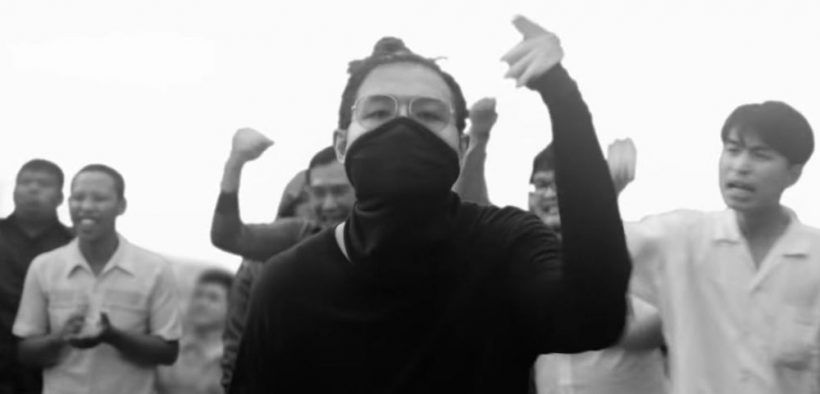Rap Against Dictatorship: A Voice for Thailand

A controversial music video has taken a nation by storm. Rap Against Dictatorship, a rap group from Thailand, has voiced the outrage of their people against the current military government through a song titled “Prathet Ku Mee” (Which Is My Country). The music video receives unprecedented attention, having garnered nearly 30 million views in just two weeks. According to Youtube’s analytics, about 97 percent of the video’s audience publicly “thumbed up” and supported the video and the message behind it. On the other hand, the track has stirred up a great deal of controversy in Thailand’s political sphere.
 The Prime Minister of Thailand, Prayut Chan-o-cha, publicly denounced the production and stated that citizens who watch or engage with the video will “share the responsibility of the damage it does to the country.” Other public officials have denounced the song as well with claims that it attempts to encite disorder and violence amongst the Thai masses. The Deputy Police Chief, Gen. Srivara Ransibrahmanakul, said that the recording artists may be apprehended for violating security laws. Needless to say, the popularity of the track has come with its fair share of notoriety and pressure. The question remains:
The Prime Minister of Thailand, Prayut Chan-o-cha, publicly denounced the production and stated that citizens who watch or engage with the video will “share the responsibility of the damage it does to the country.” Other public officials have denounced the song as well with claims that it attempts to encite disorder and violence amongst the Thai masses. The Deputy Police Chief, Gen. Srivara Ransibrahmanakul, said that the recording artists may be apprehended for violating security laws. Needless to say, the popularity of the track has come with its fair share of notoriety and pressure. The question remains:
What was it about this video, an artistic creation, that made it such a nationally significant moment?
In my enthusiasm to find an answer I jumped online, plugged in my headphones, and pulled up the music video only to find that I was unable to understand the lyrics as the entire song was recorded in Thai. Still, I let the video run. No more than 40 seconds had gone by before I understood what was happening. I realized that they were speaking languages which I had great familiarity with: Rap and Resistance. I watched in awe as each MC recited their verse one after the other in front of a rally of protesters. Their words rode over an ominous instrumental under a black-and-white visual.
Their pain was palpable behind every word they rhymed, and their body language and gestures revealed their collective frustration. Having been raised off of Rap, a Black American artform that was born out of creativity, oppression, and resistance, I was amazed at how the language was being recreated halfway across the globe.
It made sense. The same elements that produced Rap in the States was cultivating a similar energy in Thailand. It was the perfect voice for their struggle. I saw shades and influences of rap legends like Immortal Technique, Dead Prez, and N.W.A. alive and well in the Thai collective. The anguish and desperation the young men felt for their people, their country, and their future were clear in their eyes and movements. Everything came together to illustrate their story.
I asked myself: Where is all this pain coming from? To whom were they speaking to and against?
I brought myself up to speed with the political situation in Thailand. In 2014, the military took over the Thai government after a coup d’état and many months of political crisis. Under the leadership of then Gen. Prayut Chan-o-cha, the Royal Thai Army established a junta that has been in power ever since. Democratic elections have been delayed and a new constitution was drafted that extends many privileges to the military to maintain control over parliament and most other political activities. Meanwhile accounts of human rights abuse, state violence and persecution against activists and journalists have increased under the military rulership. As a result, dissidence and tension have built up amongst the Thai masses. Prathet Ku Mee appears to be the ultimate manifestation of this thus far.
I finally found a translation to the song in order to understand the exact topics and matters the rappers were discussing. The MC’s held nothing back. Amidst the constant hook “Prathet Ku Mee,” the young men fill in their verses with all their grievances regarding the criminal and unjust behavior of their current leadership. Themes of economic inequality, no representation, and state violence and coercion run rampant throughout the song.

Source: BBC
“The country where the people in suits never do what they say / The poor have to die cause’ they don’t have 30-baht healthcare…”
Some verses in particular carried powerfully eye-opening testimony to the situations in Thailand.
“The country where the government is untouchable / The police use the law to threaten people / though you are awake, you have to pretend to be asleep / You even don’t want to live, but they will force you to / The country where people read less, especially the leaders / The country that asks you to stay quiet or stay in jail / The country where corruption is always safe for the rich, which is my country, which is my country…”
With elections currently scheduled to take place in February, Rap Against Dictatorship hopes to use their music to speak truth to power and unify the Thai population to reclaim their autonomy. The rap group concludes their video with the quote:
“The polarization of the people is the authoritarian’s ultimate weapon. When this happens, the people’s power will be taken away. In the memory of all victims from all state crime. ALL PEOPLE UNITE.”
With their popularity and support showing no signs of slowing down and elections around the corner, the independent rappers may have created a historically defining moment for the people of Thailand and the world over.



